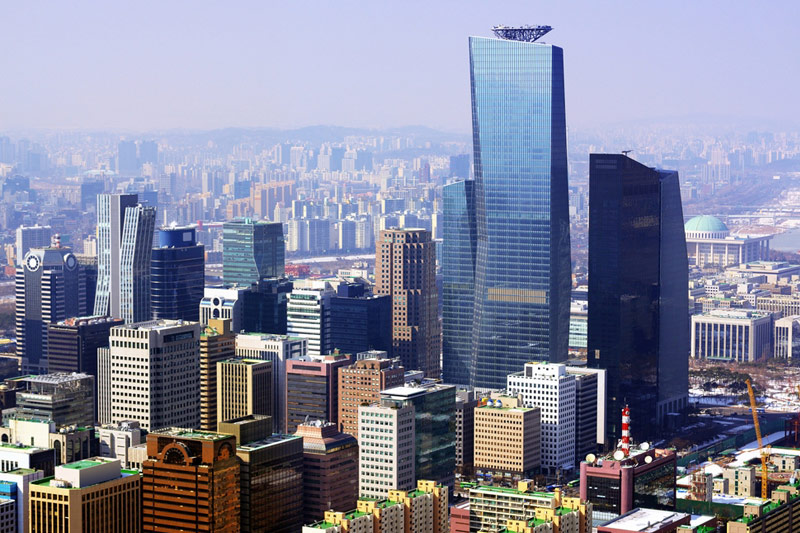(Bloomberg) -- The Bank of Korea left its benchmark interest rate unchanged on Thursday, after recent weakness in economic data raised concerns about the outlook.
The decision to hold the seven-day repurchase rate at 1.5 percent, unchanged since a hike in November, was forecast by all 18 analysts surveyed by Bloomberg. Some BOK watchers have recently pushed back their projections for the next rate increase, with the majority seeing a hike in the third quarter of this year. A few see no further action in 2018.
The latest data have dented optimism about Korea’s recovery. Exports contracted in April for the first time since 2016 and job growth is slowing. Although the BOK sees the economy expanding 3 percent this year -- above the potential growth rate -- Governor Lee Ju-yeol last week said it’s difficult to remain optimistic about it, citing a lack of improvement in the job market as one concern.
“The BOK is likely to maintain a slow and shallow policy rate normalization path,” James Lee, an economist for HSBC, wrote before the decision. HSBC forecasts the next hike as likely to come in July, but cautioned that weak job growth in coming months could delay it.
Analysts at Societe Generale (PA:SOGN) SA, Australia & New Zealand Banking Group, and Goldman Sachs Group (NYSE:GS) were among those who either withdrew their call for a rate hike this year or pushed back their projected timing. Nomura International Ltd., Bank of America Merrill Lynch (NYSE:BAC), and Standard Chartered (LON:STAN) Bank are among those expecting a July rate hike.
President Moon Jae-in was elected on a promise to be a “jobs president,” but the increase in employment from February through April eased to less than a third of that seen during the same period a year earlier, alarming some policy makers. Korea’s export growth depends heavily on semiconductors, making it vulnerable to a peaking of the tech cycle.
Of keen interest on Thursday will be whether any board members dissented, which could signal a nearer-term rate hike. At the April policy meeting, two board members said interest rates should be increased at an appropriate time to minimize the risk of financial instability, according to minutes of the meeting.
“I think the possibility of a dissenting vote is higher in July, rather than at this meeting, as various conditions suggest it’s difficult to hike now,” said Lim Hyeyoun, an economist for Daishin Securities, which expected a rate increase in August.
The won has been moving within a range of 1,055 to 1,092 this year, closing at 1,080.55 per dollar on Wednesday. The yield on three-year government bonds was at 2.24 percent.
